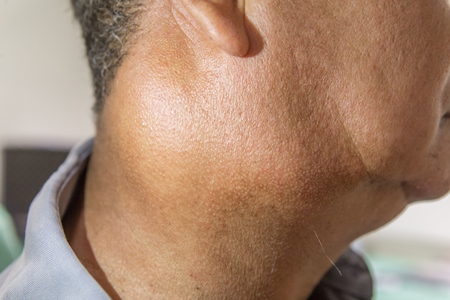
Ringing, buzzing, clicking, hissing or whooshing in your ears? You are not alone. Tinnitus is an ailment more common than you think, and it can compromise the quality of your life. Oddly enough, the more you focus on it to make it go away, the worse it gets. Here is some information on the causes of tinnitus and a list of 7 things that can make it easier to live with tinnitus, provided by Mr Parag Patel, ENT Surgeon at New Victoria Hospital.
Tinnitus doesn’t happen in your ears
Although it is related to hearing, tinnitus isn’t a direct problem with your ears, but is caused by your brain.
The sounds perceived by your ears are transmitted as a form of information to the brain that will then process it, and allow you to recognise the different sounds.
However, when the hearing function is compromised, the brain tries to get more information from the ears, and that is what creates the annoying sound.
Forms of tinnitus
You can hear the noise in one or both ears, and it can be constant or come and go during the day.
Tinnitus can be chronic when it lasts for over three months, and it can be classified according to the type of noise heard and its cause.
Tinnitus can be triggered by a stressful event
Tinnitus can start after a stressful event, such as the death of a family member or a friend, but also by general stress of everyday life.
Main risk factors which may cause tinnitus
Risk factors include prolonged exposure to noisy environments, ear infections, colds or excessive earwax.
Tinnitus can also, in itself, be a cause of stress, especially if you stop doing the activities you enjoy.
Severe forms of tinnitus can cause insomnia, hearing loss and concentration problems.
7 things that can help make it easier to live with tinnitus
Tinnitus is not a condition, and it can’t be cured, but there are a few things that can help improve symptoms, and eventually make it go away, especially if it is caused by stress.
First of all, it is necessary to have a medical diagnosis, by an ENT Specialist, to understand the root cause of this ailment.
It is important to exclude any functional or organic causes, such as an infection or damage to the cochlea (the inner ear).
A few things that can help you relieve tinnitus symptoms and improve the quality of your life are:
- Earwax removal: earwax can be quite a common cause of tinnitus. The simple manual removal or the microsuction can make the annoying sound less intense or even disappear.
- Relaxation: if tinnitus is related to stress, coping mechanisms can help reduce the symptoms. Go to a quiet space and take a few slow, deep breaths focusing your attention on the air passages.
- Mindful meditation: a recent study from Bath University shows that mindful meditation, compared to other relaxation techniques, helps more in reducing tinnitus symptoms. Learning to accept the ailment rather than fighting it produces much better outcomes. Also, both techniques help in decreasing stress, anxiety and depression.
- Background sounds: background sounds such the radio, TV or music can help with concentration and to take your mind off the tinnitus. This way, it will be easier to relax, read, cook, and enjoy your favourite activities.
- Sleeping aids: tinnitus, or your perception of it, can get worse at night because the environment is quiet and the tinnitus is predominant. Using natural aids such as melatonin, or one of the recent apps that reproduce natural sounds are great tools to combat insomnia.
- Hearing aids: if tinnitus is linked to hearing loss, hearing devices can be the solution to your bugging noise. It might take some time to adjust to sounds and volume levels, but in the long run, hearing function and tinnitus can improve significantly.
- Tinnitus Retraining Therapy (TRT): this is one of the most known therapies to get the brain used to tinnitus, “habituation”, so that it classifies it as a non-important noise as it does with many others, such as the clock ticking. TRT is based on listening to sounds via a noise generator; however, it can take a lot of time, and evidence suggests it doesn’t always work.
When should you worry about tinnitus
Tinnitus is usually a non-bothering ailment that in most cases, doesn’t compromise your day-to-day life. However, if you notice any of the following symptoms, you should see your GP or ENT Consultant:
- Dizziness
- Vertigo
- Heartbeat in your ear
In rare cases tinnitus is an indication for a more serious condition that needs to be addressed as soon as possible.
If you would like to book an appointment with one of our ENT Consultants at New Victoria Hospital, you can use our online booking form or call 020 8949 9020.













